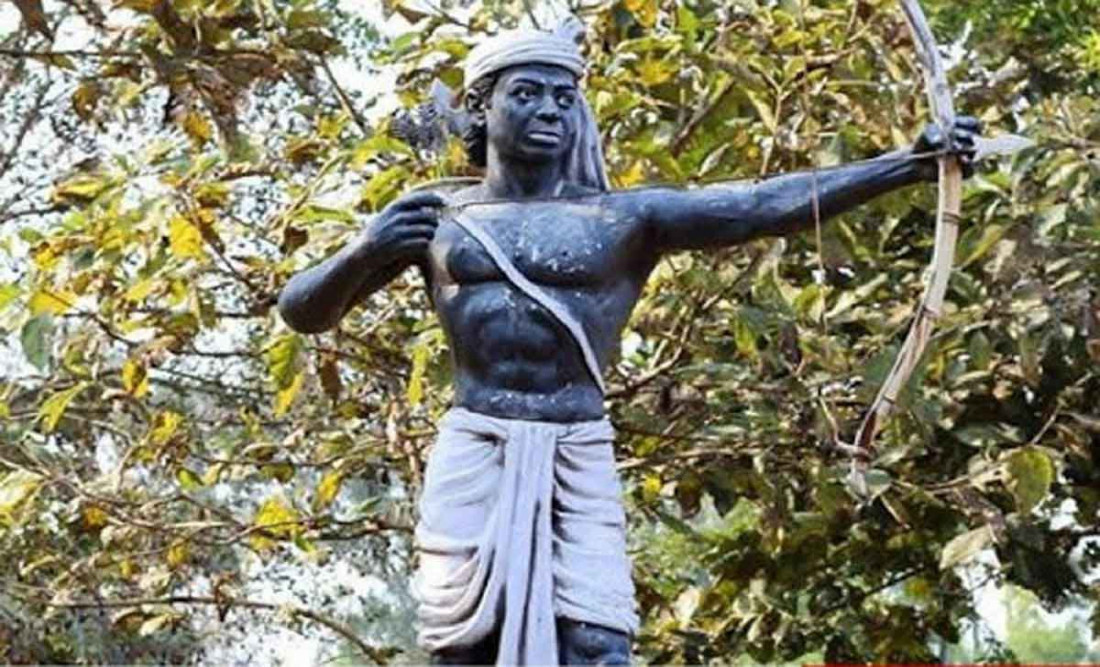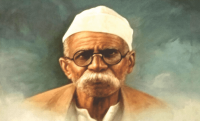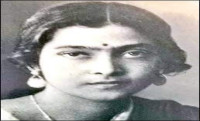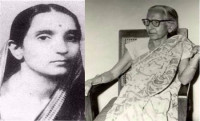Tilka Manjhi: Adi rebels who say 'Hansi Hansi Chadbo hanging'

Nayak Tilka, who led the society in the fight for water, forest and land with the British rule and the local moneylenders and zamindars, got another name "Manjhi". In the dialect of the Paharia community, it is used in the sense of a leader or chief. Manish Bhatt Manu is telling
Special on Tilka Manjhi (February 11, 1750 – January 13, 1785)
You were showered with whips,
You were tied in horses and dragged,
Still you could not be killed,
You publicly in Bhagalpur,
were hanged,
Still the zamindars and the British were afraid,
With your tilka (angry) eyes,
You could not be killed even by dying.
The tribals of Jharkhand remember their ancestor Tilka Manjhi through a special song. The above poem is a translation of the same Gita which tells us how deeply his heroes are entrenched in the local public even today. It is mentioned in this that Jabra Paharia was born on February 11, 1750 in a village named 'Tilakpur' located in Sultanganj, Bihar. Due to his belligerent attitude against injustice and exploitation, the British named him Tilka. Which in Pahariya language means angry person with red eyes. This hero, who led the society in the fight for water, forest and land with the British rule and the local moneylenders and landlords, got another name "Manjhi". In the dialect of the Paharia community, it is used in the sense of a leader or chief. From 1771 to 1784, this son of the jungle fought a long struggle against the British power. He never surrendered, never bowed down or scared. He never let the local usury landlords and English rulers sleep peacefully while they were alive.
Even though you may not find any specific mention of Tilka Manjhi's contribution in the history of independent India, but from time to time many writers and historians have given her the honor of being the 'first freedom fighter'. Writer Mahasweta Devi composed a novel 'Shalgirar Dake' in Bengali language on the life and rebellion of Tilka Manjhi. This novel has been translated and published in Hindi under the name 'Shalgirah Ki Pukar Par'. Hindi novelist Rakesh Kumar Singh has told the struggle of Tilka Manjhi in his novel 'Hul Pahariya'. Although according to historians, the name of Jabra Paharia is present in the British documents, but Tilka Manjhi is not mentioned anywhere.
It is equally true that even today a large population of the country is not familiar with Tilka and its contribution. They are not even mentioned in most of the courses. The biggest reason behind Tilka's neglect can be considered that his rebellion was against the British as well as against the indigenous moneylenders and zamindars engaged in capturing the natural resources of the tribals together with them. In such a situation, both the classes in power did not allow Tilka's sacrifice to appear in the books.
Tilka had always seen his forest being exploited and his people being oppressed. The British rulers had occupied the land, agriculture, wild trees of the poor tribals. The battles of the tribals and the hill chieftains were often with the British power, but the plateau landlord class supported the British power. Slowly Tilka started raising voice against it. He waged a war against injustice and slavery. Tilka Manjhi used to address the local people in meetings in Bhagalpur to inculcate the national spirit. He used to inspire people to unite for the country by rising above caste and religion. When there was a severe famine in the year 1770, Tilka looted the treasury of the British rule and distributed it among the common poor people. Due to his noble deeds and the flame of rebellion, more tribals joined him.
In the year 1784, he attacked Bhagalpur and on 13 January 1784, by climbing a palm tree, the British collector 'Augustus Cleveland', riding on a horse, aimed and killed his poisonous arrow. The entire British government was shocked by the death of the collector. He did not even dream that a tribal living in the jungles could do this. The British army made a heel-peak thrust, but they could not capture Tilka. But later a person who knew Tilka brought information about him to the British. As soon as the information was received, the British army attacked Tilka's hideout. But somehow they escaped and they continued their raids against the British by taking shelter in the hills. In such a situation, by laying siege to the mountains, the British stopped all aid reaching them. Because of this, Tilka Manjhi had to fight from the mountains due to lack of food and water and one day he was caught. It is said that Tilka Manjhi was dragged by four horses to Bhagalpur. He was hanged on 13 January 1785 by hanging from a banyan tree.
This guerrilla fighter of the Pahariya community is such a legend about which historical documents do not give complete details by mentioning just the name. But its guerilla biography and stories in the ancestral songs and stories of the Paharia community make an unassailable claim of its original rebel even after centuries. After Tilka Manjhi, many tribal heroes fought against the British and the zamindars and got the death penalty. These are great sacrifices, but the high caste and elitist history view has also excluded the heroes of excluded India from history.
It is said that Tilka aka Jabra Paharia sang the song “Haansi Hansi Chadbo Phansi” before being hanged. It emerged as a symbol for many movements to come. American novelist Howard Fast wrote the novel Rebel and made Spartacus, the hero of Rome's slaves, the hero of the world. The first name of Spartacus comes as soon as the discussion of a rebel anywhere in the world comes. Tilka Manjhi aka Jabra Paharia, the Adi rebel of modern India, is still in search of a writer like Harvard Fast, who can give his rebellion a rightful place in history.

Manoj Bhiva
Manoj Bhiva is a dedicated writer who loves to write on any subject. Manoj Bhiva maintains a similar hold on politics, entertainment, health, abroad articles. Manoj Bhiva has total experience of 3 years in web and Social. Manoj Bhiva works as a writer in Wordict Post.
Holocaust allegation by Palestinian president rejected
Posted on 17th Aug 2022

Russian Rocket 'Totally Destroys' Dorm, Unknown Amount Dead: Zelensky
Posted on 18th Aug 2022








